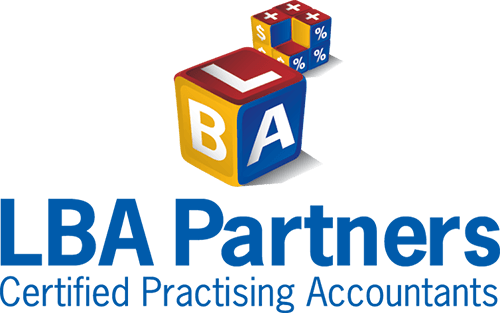P r a c t i c e U p d a t e
May 2013
Proposed changes to superannuation
Editor: Apparently in order to neutralise mounting speculation that superannuation was under threat in the upcoming Budget, the Government took the unusual step of comprehensively outlining its intentions when it comes to superannuation reform generally.
The Government has announced that it plans to make the following changes to the superannuation laws (in addition to other changes already made, such as the progressive increase in the superannuation guarantee rate from 9% to 12%):
- cap the tax exemption for earnings on superannuation assets supporting income streams (i.e., superannuation pensions) at $100,000, with a concessional tax rate of 15% applying thereafter, and apply the same treatment to defined benefit funds;
- provide a higher $35,000 concessional contributions cap to people aged 60 and over from 1 July 2013, and to individuals aged 50 and over from 1 July 2014;
- reform the treatment of concessional contributions in excess of the annual cap;
- extend the normal deeming rules (for social security purposes) to superannuation account-based income streams;
- extend concessional tax treatment to deferred lifetime annuities; and
- further reform the arrangements for lost superannuation.
Self-education expenses next on the chopping block!
The Government has announced that it will "better target work related self-education expense deductions" by introducing an annual cap on deductions for such expenses from 1 July 2014 of $2,000 a person.
Education expenses include formal qualifications and associated tuition fees, textbooks, stationery and travel expenses and also conferences, seminars and self-organised study tours.
However, employers that provide education and training to their employees will continue to have this excluded from any liability for fringe benefits tax (FBT) unless an employee salary sacrifices to obtain these benefits.
Editor: Although the Government states that they are targeting people making large claims for expenses such as first class airfares, five star accommodation and expensive courses, the introduction of a $2,000 annual deduction cap seems like a very blunt instrument to tackle such claims.
Our tax agent association is taking up the fight to ensure that 'regular' claims are not affected.
Taxpayer slammed by 'benchmarking' audit
Editor: In a recent case, the AAT has affirmed the ATO's ability to use industry benchmarks to amend taxpayers' returns where their record keeping is found to be insufficient and lacking.
Facts of the Case
The taxpayer carried on a florist business in a suburb of Perth and her 2008 income tax return reported a cost of goods sold (COGS) of $259,982 and "Total business income" of $313,971.
In September 2010, the ATO advised that the COGS for the florist business represented 83% of her reported business income, which was outside the ATO's COGS industry benchmark percentage range of between 44% and 54%.
In the same letter, the ATO requested that she provide it with evidence that she was correctly recording and reporting her business income for the florist, including various specific records, and an explanation as to why her business was reporting outside the benchmarks for her industry.
The taxpayer provided deposit slips and bank statements for the period, but was only able to supply:
- cash register roll receipts for the period 9 May 2008 to 17 May 2008; and
- a spreadsheet summary of cash register rolls for the period 5 April 2008 to 30 June 2008.
The ATO advised the taxpayer that, as she had forwarded only partial 'Z summaries' of her till tapes and failed to reconcile her cash takings, it had applied the COGS benchmarks for the florist industry, increasing the income of the florist business by more than 50%.
This resulted in a shortfall of income tax of $57,389 and a shortfall of GST of $16,745. The ATO also applied penalties of 50% on top of these shortfalls.
The Decision by the AAT
Very little further evidence was provided to the hearing and neither the taxpayer nor any other witnesses appeared.
Based on the evidence before it, the AAT decided that, in the circumstances, it was open to the ATO to apply the COGS small industry benchmark range (of 44% to 54%) for the florist industry and increase the income of the florist business for the 2008 year therefore, increasing the taxpayer's income tax and GST liabilities in respect of that year.
Editor: The ATO provides specific guidance about the types of records they expect to see from businesses that use cash registers (i.e., they accept that the rolls of tape may be discarded after one month provided that the person has reconciled the "Z-totals" with actual cash sales and bankings for that period).
Cars still on ATO's FBT radar
The ATO has been reviewing car fringe benefits and using third-party data, has identified and contacted 5,000 employers who may have an unreported FBT liability.
Some outcomes of this review are:
- one employer declared four cars, resulting in a payment of over $35,000 in FBT per year. As the employer came forward voluntarily, there were no penalties; and
- other employers reviewing their situations are identifying other benefits that should have been reported (e.g., one employer reported over $40,000 in expense and meal entertainment benefits).
The ATO plans to contact another 10,000 employers by letter in 2013, and has reminded employers that:
- if they make a car available to their employees for private use, they'll probably have an FBT liability;
- if a car is garaged at home, it is taken to be available for private use; and
- travel to and from work is generally considered private use.
FBT: Benchmark interest rate
The benchmark interest rate for the 2013/14 FBT year is 6.45% p.a. (down from 7.40%), which is used to calculate the taxable value of:
- a fringe benefit provided by way of a loan; and
- a car fringe benefit where an employer chooses to value the benefit using the operating cost method.
FBT: Cents per kilometre basis
The rates to be applied where the cents per kilometre basis is used in respect of the private use of a vehicle (other than a car) for the 2013/14 FBT year, commencing 1 April 2013, are:
| Engine capacity | Rate per kilometre |
|---|---|
| 0 – 2,500cc | 49 cents |
| Over 2,500cc | 59 cents |
| Motorcycles | 15 cents |
Please Note: Many of the comments in this publication are general in nature and anyone intending to apply the information to practical circumstances should seek professional advice to independently verify their interpretation and the information's applicability to their particular circumstances.



